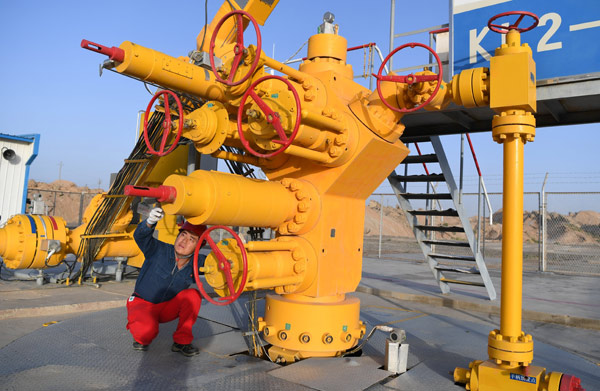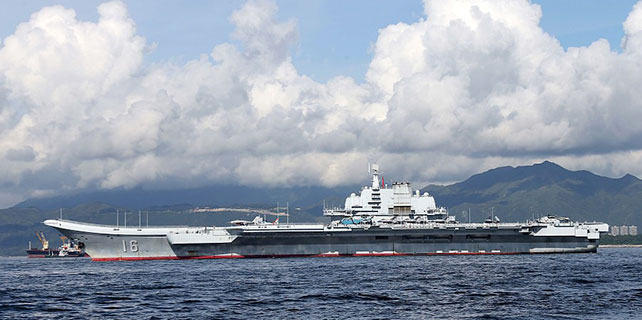Nation set to expand its oil and gas pipeline network
 |
|
A worker checks oil transport facilities at the Tarim Basin in Xinjiang Uygur autonomous region. [Photo/Xinhua] |
China has vowed to further strengthen its oil and gas pipeline network during the next decade, in an attempt to further boost the clean fuel's share in the country's energy mix.
By 2025, the country's oil and gas pipeline network is expected to reach 240,000 kilometers, with natural gas pipelines reaching 123,000 kilometers, according to the nation's top economic regulator.
According to the National Development and Reform Commission, China now has 112,000 kilometers of oil and gas pipelines, which means the country will need to build another 128,000 kilometers of pipeline in the next few years.
The commission said expanding the energy reach is in accordance with the country's rapid growth in energy demand, as well as a shift towards the use of cleaner fuel like natural gas instead of coal to meet environmental protection goals.
"The expansion of China's oil and gas pipelines will substantially boost the country's energy security while ensuring its energy diversification," said Zheng Jian, deputy head of the commission's basic industries section.
"The newly constructed pipelines will help connect the south and north, east and west, while linking the sector's upstream and downstream, meeting the emerging demand for cleaner energy and expanding the usage of natural gas."
China's expanding energy transportation network will also boost the development of sectors including advanced steel, equipment manufacturing and engineering technology, he added.
According to Zheng, China's current oil and gas network has limited capacity, especially when compared with its counterparts in Russia and countries in the European Union.
In addition, the fragmented and dispersed networks, together with the lack of an overall pipeline network also pose a threat to future oil and gas transportation, and oil and natural gas imports are set to rise in the years ahead to cope with China's growth in oil and gas demand for both consumer and industrial use.
According to the commission, the country's pipeline network for natural gas in 2015 reached 64,000 kilometers, and is expected to reach 163,000 kilometers by 2025, a 9.8 percent annual increase.
The pipeline networks for crude oil and refined oil, which respectively reached 27,000 kilometers and 21,000 kilometers, will also be expanded to 37,000 kilometers and 40,000 kilometers by 2025, a respective annual boost of 3.2 percent and 6.7 percent, it said.
Wang Lu, an Asia-Pacific oil and gas analyst at Bloomberg Intelligence, added that the biggest bottleneck currently is the underdeveloped pipeline network.
"The expected growth in pipeline length and total transmission capacity will help China raise the share of gas in the primary energy consumption mix," she said.
However, Li Li, energy research director at ICIS China, a consulting company that provides analysis of China's energy market, warned the future development of oil and gas pipelines may also slow down mostly due to financial concerns.
"Considering a project this big, the investment is intensive and the payoff period is too long, which could introduce many uncertainties to its development," she said.






















